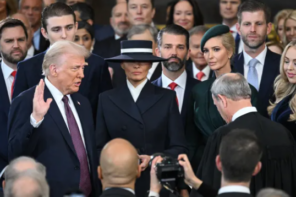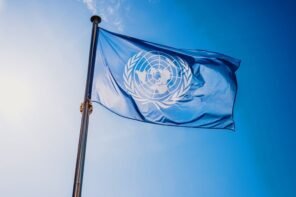
Monday February 10, 2025
The Revenge of Geopolitics: Strategic Communications in a Fragmented World
The “Revenge of Geopolitics”, as outlined in Oliver Wyman Forum’s State of Our World 2025, underscores how state interventions, economic realignments, and multi-aligned powers are reshaping global markets. For strategic communicators advising governments, multinational corporations, and international development agencies, this era presents both risks and opportunities.
At Curzon PR, we see this geopolitical transformation as a communications challenge at its core. How do organisations navigate a world where politics dictates markets, alliances are fluid, and narratives hold as much power as policies?
Geopolitics-First: A New Mandate for Strategic Communicators
Traditionally, geopolitics was a backdrop to business strategy, an external force to monitor but not necessarily a driver of decision-making. Today, it is the primary strategic consideration. Whether advising governments on reputation management, crafting corporate narratives, or developing crisis response strategies, strategic communicators must integrate geopolitics into every aspect of their counsel.
Consider the following shifts:
From Multilateralism to Multipolarity: The post-WWII order of US-led globalisation is fading. New power blocs—US allies, China and Russia’s challengers, and neutral multi-aligned states—are emerging, requiring tailored messaging and engagement strategies.
From Free Trade to Protectionism: Tariffs, export bans, and industrial policies are being wielded as tools of economic statecraft. Brands must anticipate government interventions and adjust stakeholder engagement accordingly.
From Corporate Neutrality to Political Entanglement: Companies can no longer remain apolitical. As seen with Western businesses exiting Russia, TikTok’s US regulatory battles, and the semiconductor war, companies must proactively define their stance on geopolitical issues or risk being forced into reactive damage control.
Strategic Communications Imperatives in the Age of Geopolitical Fracture
To help clients navigate this landscape, strategic communicators must adopt a geopolitics-first approach across three key areas:
Corporate Diplomacy & Government Relations
- Multinational corporations (MNCs) must act as quasi-diplomatic entities, engaging with multiple governments to safeguard operations.
- Communications teams should map geopolitical risk scenarios, conduct stakeholder audits, and develop policy narratives that align with government agendas while maintaining corporate independence.
- A proactive public affairs strategy is crucial, ensuring decision-makers understand a company’s role in economic stability, innovation, and employment.
Narrative Control in an Era of Strategic Misinformation
- Information is a weapon. Governments and businesses alike are increasingly vulnerable to state-backed disinformation campaigns.
- Companies must build real-time reputation defence systems, leveraging AI-driven monitoring and counter-narrative campaigns to neutralise falsehoods before they take hold.
- Global institutions and brands should develop localized storytelling strategies, understanding how geopolitical narratives differ by region and audience.
Crisis Management & Reputation Resilience
- Geopolitical shocks—whether supply chain disruptions, sanctions, or regulatory crackdowns—must be integrated into crisis communications playbooks.
- A three-tiered crisis response framework (immediate, mid-term, and long-term) should be developed to address:
- Regulatory threats (e.g., US-China trade wars)
- Market access risks (e.g., de-dollarisation, sanctions)
- Reputational attacks (e.g., media exposés, activist pressure)
- Reputation is no longer static; it requires continuous reputation-building, ensuring an organisation’s license to operate is secured across multiple jurisdictions.
Geopolitical Storytelling: Reframing the Narrative
To succeed in the geopolitical arena, businesses and governments must control their own narrative rather than allowing others to define it. This requires a shift from reactive messaging to proactive geopolitical storytelling, where organisations frame themselves as:
Solution Providers: Demonstrating how they contribute to economic resilience, innovation, and security.
Values-Driven Actors: Aligning with ethical governance and sustainable development, ensuring ESG and DEI principles are reflected in external messaging.
Resilient Market Leaders: Showcasing supply chain flexibility and commitment to stability in an era of global uncertainty.
The New Communications Power Brokers
In this new world order, strategic communicators are as crucial as policymakers and CEOs. They are the architects of public perception, the navigators of policy influence, and the builders of corporate diplomacy.
At Curzon PR, we believe that communications is not just about managing reputation—it is about shaping the geopolitical realities in which businesses and governments operate.
The “Revenge of Geopolitics” is not just a challenge—it is an opportunity for those who understand how to wield strategic narratives in an era where influence is the most valuable currency.
Is your organisation ready to lead the narrative?
Curzon PR is a London-based PR firm working with clients globally. If you have any questions, please feel free to contact our Business Development Team bd@curzonpr.com







Follow us